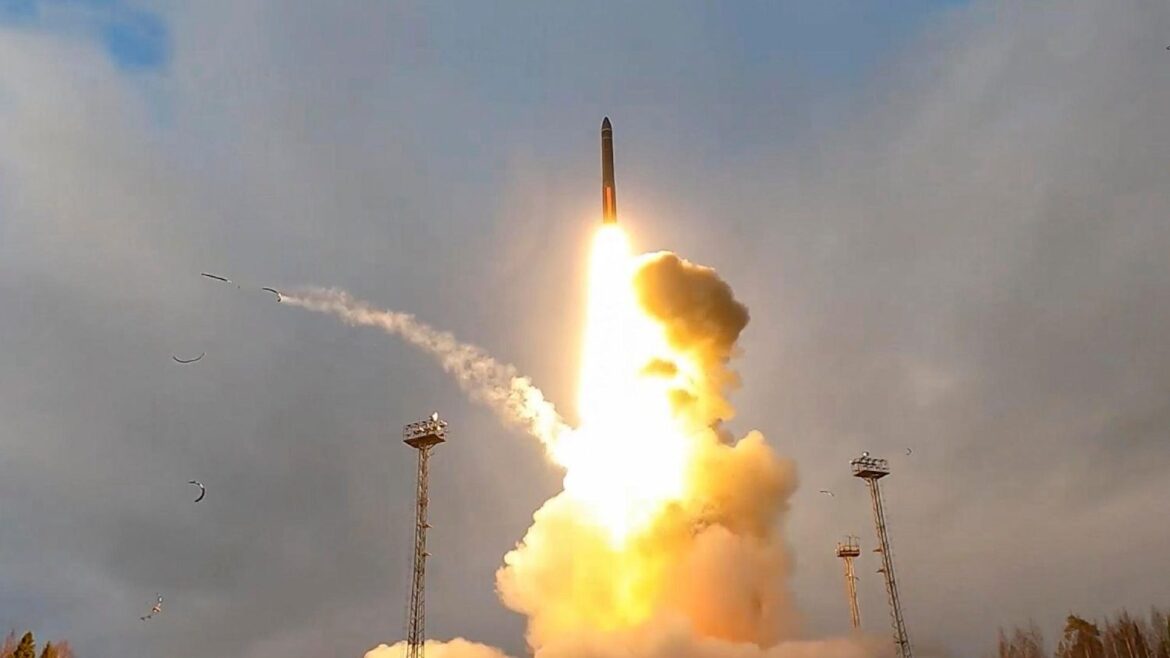
The Holy See’s Permanent Observer to the United Nations, Archbishop Gabriele Caccia, warns that the accelerating global race to rearmament is endangering peace and undermining the very foundations of international cooperation.
By Linda Bordoni
Addressing the General Debate of the First Committee of the 80th Session of the UN General Assembly in New York, Archbishop Gabriele Caccia urged world leaders to recommit to disarmament and to revive multilateral dialogue aimed at safeguarding humanity’s future.
A “perilous resurgence of force and fear”
The Holy See’s Permanent Observer to the United Nations recalled that eighty years have passed since the atomic devastation of Hiroshima and Nagasaki and the founding of the United Nations. Yet, he said, the “spirit of diplomacy and multilateralism” that once sought to protect humanity from the scourge of war is being overshadowed by “the perilous resurgence of force and fear as ways to resolve disputes.”
He lamented that this erosion of trust and dialogue is weakening cooperation, damaging economies, and deepening the suffering of vulnerable communities around the world. Quoting Pope Leo XIV during an audience with Catholic Aid Agencies, he warned against the illusion that security can be built through military might.
“How can we continue to betray the desire of the world’s peoples for peace with propaganda about weapons buildup,” the Pope asked, “as if military supremacy will resolve problems instead of fueling even greater hatred and desire for revenge?”
The “illusory logic” of deterrence
The archbishop expressed deep concern at the renewed rhetoric surrounding the use of nuclear weapons and the expansion of nuclear arsenals. He denounced what he described as a “new arms race” driven by the integration of artificial intelligence into military systems and the extension of competition into outer space.
“These developments,” he said, “pose an unprecedented danger to humanity.”
Calling for a move beyond “the illusory logic of nuclear deterrence,” Archbishop Caccia reaffirmed the Holy See’s call for good-faith negotiations under the Treaty on the Non-Proliferation of Nuclear Weapons (NPT).
He urged all nuclear-armed states to honour their disarmament obligations and encouraged the ratification of key international instruments such as the Comprehensive Nuclear-Test-Ban Treaty (CTBT) and the Treaty on the Prohibition of Nuclear Weapons (TPNW).
Conventional weapons and “autonomous killing”
While nuclear arms continue to threaten humanity, the Archbishop also drew attention to the devastating effects of conventional weapons. He deplored the continued use of explosive weapons in populated areas and the lingering menace of landmines that “continue to maim and kill long after conflicts have ended.”
He highlighted the illicit proliferation of small arms and light weapons as one of the most pressing global security concerns, noting that their misuse “fuels instability and exacts a heavy toll on fragile communities,” particularly among women, children, and the elderly.
Turning to emerging technologies, Archbishop Caccia voiced alarm at the development of lethal autonomous weapons systems. These, he said, “operate without meaningful human control” and “transgress every legal, security, humanitarian, and ethical boundary.”
He urged Member States to support the UN Secretary-General’s call to conclude a legally binding instrument banning such weapons by 2026, before they “cast an even darker shadow on the future.”
Appeal for “fundamental change in perspective”
Archbishop Caccia noted that global military spending reached 2.7 trillion dollars in 2024, even as progress toward the Sustainable Development Goals continues to falter. He called this situation “unacceptable,” insisting that the resources spent on weapons could instead be used to address poverty, education, and health.
“There is still time to change course,” he said, urging nations to embrace “a fundamental change in perspective” — one that rejects reliance on arms and builds peace through dialogue rooted in human dignity, respect for human rights, and integral human development.

